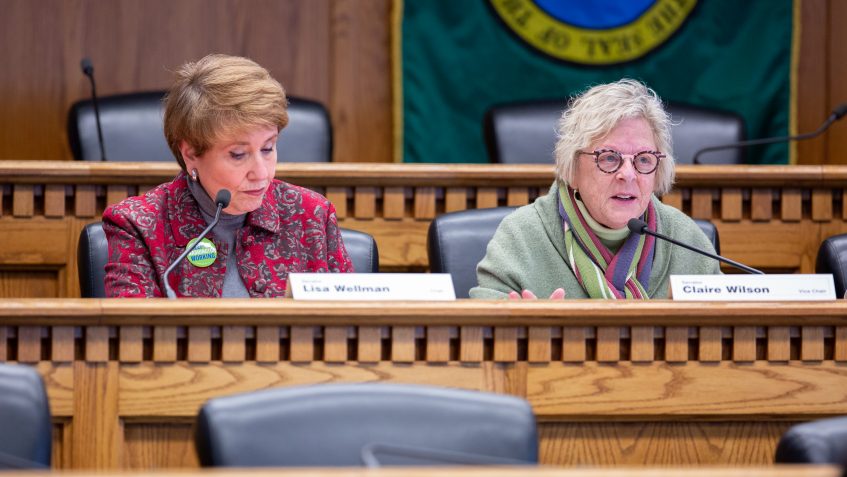The expansion of science-based, age-appropriate sexual health education to all public school districts and grade levels was signed into law today by Gov. Jay Inslee.
“This curriculum has been taught in many of our school districts for years, but kids in other districts haven’t had access to the same information and protections,” said Sen. Claire Wilson (D-Auburn), the vice chair of the Senate Early Learning and K-12 Education Committee. “This is about making sure younger children know what kind of touching is inappropriate, whether by peers or predators. It’s about helping older students recognize and resist abusive or coercive behavior. It’s about teaching all children to respect diversity and not to bully others.”
Among other things, Wilson’s Senate Bill 5395:
- Expands comprehensive sexual health education curriculum to all grade 6-12 schools across the state, phased in over several years;
- Phases in age-appropriate curriculum for K-5 grades; and
- Simplifies the process by which parents may exempt children from sexual health education classes on request.
“We all want to keep our children safe. As an educator and parent of teenagers, I have seen the consequences of not providing young people with information they need,” said Rep. Monica Stonier (D-Vancouver), who sponsored companion legislation in the House and shepherded Wilson’s bill to passage in that chamber. “This bill will help schools provide students with the age-appropriate tools they need to keep themselves safe and healthy, while maintaining local control in districts.”
“Students need a safe place to ask questions and get the information they need to make safe decisions,” Wilson said. “Every year, there are children who are targeted for molestation, there are young women who are coerced or assaulted. The information and lessons in this curriculum will help our children live healthier, safer lives.”
The bill has been a target of disinformation campaigns that have sought to stir opposition by circulating misleading and false depictions of the sexual health curriculum.
Wilson noted that the curriculum does not promote sex or direct teachers to instruct students on how to have sex, one of numerous nonfactual claims that has been alleged. To the contrary, the curriculum focuses on health and safety, emphasizes the importance of consent, and is proven to reduce unintended pregnancy and STIs.
The bill earned the support of King County prosecutors who wrote in a recent op-ed in the Seattle Times that the curriculum would help prevent sexual abuse and violence by teaching healthier behaviors.
“In committee hearings, we heard testimony from a wide range of students, young people and educators, and even older people who said they wished they’d had access to this curriculum when they were younger,” Wilson said. “They spoke of confusion, torment and hardship that could have been avoided if they had better understood their rights and options and the ramifications of sexual activity. They said they wanted the kids going through our schools today to be able to avoid the pitfalls they endured.”

